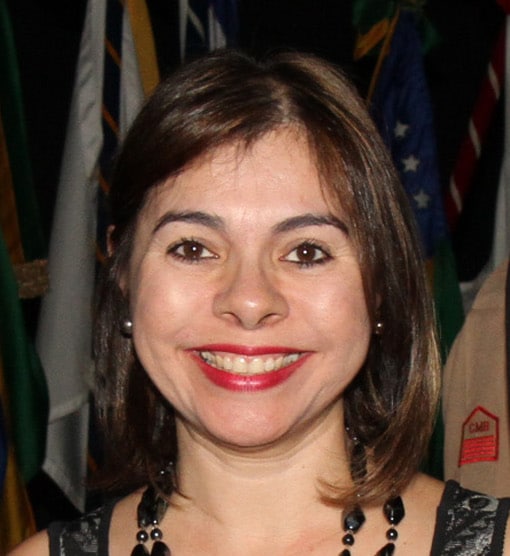A matter of balance – women as plenary speakers
If you have spent some time online in the past months, particularly on Facebook, you may have come across a number of posts followed by hundreds of comments, basically related to gender equality, or lack of it, in ELT events. Gender equality in general is an issue that has been discussed for a long time, hence Women’s International Day (celebrated on March 8th) and Women’s Equality Day (celebrated on August 26th). Although the demand for gender equality is not new, in most professional areas the balance is far from ideal as we constantly see depicted by the media all over the world. Women still get paid less, are discriminated for having children (or for being potential mothers), for the way they dress, the way they speak, and so on. The fact that characteristics considered positive in men are very often considered negative in women and the fact that men get employed and promoted more easily are usually approached (and proven) by several studies. ELT, like any other professional area, is no exception to the rule.
It is common sense that women represent a large percentage of participants in major ELT events either as attendees or as speakers. Nevertheless, the number of women plenary as speakers seems to be disproportionate, as apparently men are still considered the ‘big stars’. The discussion gets more heated from time to time, with pictures of male-only panels fuelling the debate. Gender equality in ELT goes beyond the proportion of male x female plenary speakers in conferences, given that gender issues cannot be simplified and reduced to male versus female, but bearing the current debate in mind, I decided to collect some data on the situation regarding the two biggest teachers’ associations in the world (i.e. TESOL and IATEFL) and their affiliates in South America. The data collected considers the past five events of IATEFL and TESOL (2013-2017), events organised by IATEFL Peru (2013), VENTESOL (2015), ECUATESOL (2016), FAAPI, IATEFL Chile and AR-TESOL (2017)[1] and the past five events of BRAZ-TESOL (2008-2016)[2]. The results are shown in the charts below:


As can be inferred from the chart, the past five events organised by TESOL and IATEFL seem to present some kind of balance, with IAETFL doing better when it comes to gender equality. However, it is important to notice that TESOL had a 50/50 balance in 2014, 2015 and 2016. In 2013, 40% of the speakers were women. However, this year, there was only one woman plenary speaker while three men took the floor. IATEFL had five plenary speakers between 2013 and 2017 (that, I believe, is the format they usually follow), therefore the proportion will not be 50/50. In 2013 and 2014, women accounted for 40% of plenary speakers and 60% in the following years.
One might consider that associations such as IATEFL and TESOL are better able to negotiate a fairer balance of plenary speakers, who are usually sponsored by publishing houses and other companies interested in education. Local associations, understandably, would have limited influence on the choice of plenary speakers. Nevertheless, the scenario for teachers’ associations in South America does not seem to be unfair as far as gender equality is concerned, as the chart below shows:

Although the data collected on associations in South America is not as consistent as the data for IATEFL and TESOL (see footnote 1), it shows some kind of equality between 2013 and 2017.
You may be asking yourself what the situation is like in BRAZ-TESOL, given the fact that most readers of RichmondShare are either Brazilians or live in Brazil. The numbers, as you can see, are disappointing:

Although BRAZ-TESOL seems to fail as far as plenary speakers gender equality is concerned, what really draws attention is that the number of female plenary speakers has been falling steadily since 2008: 56% were women in 2008 and only 25% in 2016.

It is important to clarify that the aim of this post is not to criticize teachers’ associations, or particularly criticize BRAZ-TESOL. I am a witness of the effort some board members have put into trying to strike this balance. The aim here is to move from the ‘impression’ that conferences are basically constituted of male plenary speakers to one of actually checking the numbers. Of course the data only refers to larger events and the situation might differ when we analyse smaller gatherings, but I believe it is important to see what the numbers are. Another aspect I would say also deserves further reflection is the difference between equality and balance. Equality, I believe, would be something closer to a 50/50 proportion. Balance, in this case, would have to take into consideration the fact that there are many more women in teaching than men, thus a 50/50 proportion can also be considered unfair by some.
To conclude, as the BRAZ-TESOL International Conference 2018 draws ever-closer, I hope this information proves useful. I hope it is also useful for us to think further about what can be done to achieve a fairer balance. It is not a matter of pointing fingers, but of finding ways to be more representative. This, however, should be the topic of a future post.
[1] These were the events whose information was available online.
[2] As BRAZ-TESOL is a biannual conference, the five past events were considered, following the pattern of data collection for TESOL and IATEFL.





